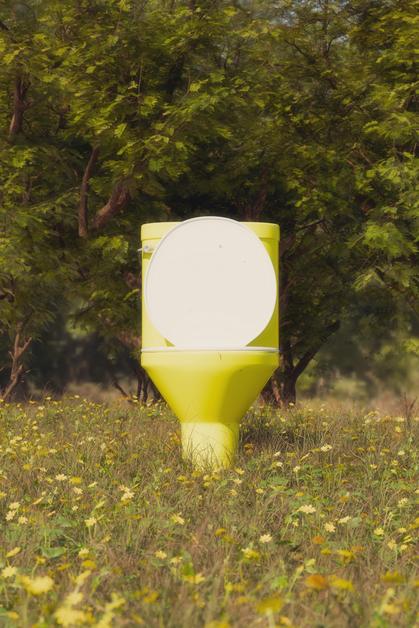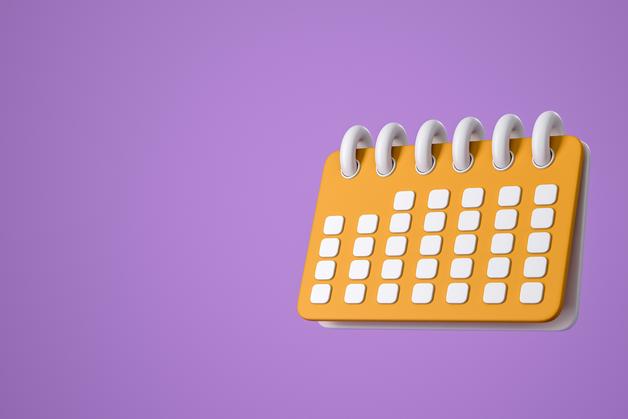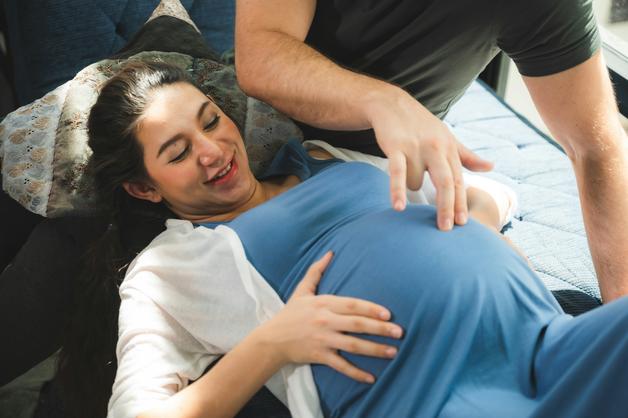Unpredictable rivers of urgency, those relentless early-morning bathroom trips, and the echo of a never-empty bladder—frequent urination during pregnancy is a phenomenon as familiar to parents as ultrasound appointments and midnight cravings. For many, this symptom rearranges daily routines, infiltrates peaceful nights, and redefines the art of the quick exit from public spaces. But what truly lies beneath this cascade of urges? When is it simply the melody of a healthy pregnancy, and when does it serve as a red flag? Parents frequently ask: is it possible to reclaim comfort, rest, and confidence, or must the bathroom become a constant companion until delivery? Let’s unravel the multifaceted story behind frequent urination pregnancy, unpack how it unfolds trimester by trimester, and explore real-world strategies to foster your wellbeing.
What Triggers Frequent Urination Pregnancy? The Physiology Decoded
Every hormonal twist sends ripples through the system. At the heart of frequent urination pregnancy lies a cocktail of early-pregnancy changes, each conspiring to shift what once felt predictable.
- Human chorionic gonadotropin (hCG) catapults shortly after conception, surging renal blood flow, sharpening bladder awareness. With the kidneys filtering more fluid—sometimes inconspicuously—urine production ramps up before any physical signs of pregnancy become obvious.
- Enter progesterone. This hormone is notorious for relaxing smooth muscle tissue, including that holding the bladder and pelvic floor. The byproduct? Diminished muscular resistance and, for some, the vivid surprise of a leak triggered by laughter or sneezing. Everyday life suddenly becomes an improvisation.
- Blood volume climbs by as much as 50%. This remarkable adaptation is vital for supporting the developing fetus, but it leaves the urinary tract working overtime. Kidneys double down on their filtering role, channeling excess fluid straight to the bladder.
- Anatomical pressures mount as the uterus expands. Space that once belonged to the bladder is swiftly commandeered, compressing its capacity and conveying the message “time to go” long before it’s truly full.
- Meanwhile, the pelvic floor—nature’s muscular hammock—softens and stretches. This shift supports the growing uterus, but it also reduces resistance to small leaks, especially during the closing weeks of pregnancy or a fit of coughing.
- Caffeine, that steadfast friend of the fatigued, intensifies matters. As a natural diuretic, it amplifies bladder demands. Remarkably, fluids retained in the legs throughout the day can return to circulation overnight, causing a distinctive pattern: fewer bathroom trips by day, but nocturnal awakenings—nocturia—as evening falls.
The Timeline of Frequent Urination Pregnancy: Trimesters in Focus
Each pregnancy journey is unique, yet certain patterns are as consistent as the turning of pages in a cherished story.
First Trimester Currents
Just as excitement and anxiety race ahead in early pregnancy, frequent urination pregnancy often makes an entrance alongside that first positive test. Bladder sensitivity is heightened. Blood rushes through newly dilated vessels, and those midnight excursions are likely to begin in earnest—even before a prominent bump appears.
Second Trimester: A Brief Respite
Breathe a sigh of relief, for many mid-pregnancy weeks offer reprieve. As the uterus rises into the abdomen, it lessens direct pressure on the bladder. Nights become more restful; some parents reclaim longer, uninterrupted sleep. It’s a window in which urgency may decline, though not always for everyone.
Third Trimester: Return of the Urge
As the fetus shifts downward—a process known as “lightening”—sudden urgency returns with a vengeance. The bladder finds its territory reclaimed by the descending baby, shrinking its reservoir and intensifying those imperious demands to visit the restroom. Nighttime awakenings multiply, a prelude to the frequent feedings soon to come.
Navigating Daily Life: Strategies for Comfort and Confidence
The choreography of adapting to frequent urination pregnancy may feel daunting, but small, intentional actions offer measurable relief.
- Hydration Balance: Maintain optimal intake—aim for 1.5 to 2 liters daily, barring contrary medical advice. It’s tempting to restrict fluids, but dehydration opens the door to urinary tract infections (UTIs) and worsens overall exhaustion.
- Caffeine Moderation: Reducing coffee, tea, and fizzy drinks tempers bladder irritation and decreases frequency.
- Wardrobe Wisdom: Opt for loose, stretchable clothing and gentle, breathable underwear. Comfort becomes an ally, minimizing physical triggers and dampening skin irritation.
- Respond to Signals: Fighting the urge or “holding it” retrains the bladder in unhelpful ways and increases the risk of infection. Empty the bladder when prompted, using proper posture—leaning forward can ensure more thorough voiding.
- Managing Leaks: Specialized liners—unscented and air-permeable—support confidence and safeguard skin, especially during social gatherings or active days.
- Bowel Management: Fiber-dense diets—whole grains, fruits, vegetables—help keep bowel movements regular, reducing additional pressure on an already compressed bladder.
Safeguarding Intimate Health and Preventing Infections
Protecting the delicate balance of the urinary tract is paramount:
- Wipe front to back to block the migration of bacteria from the rectal area.
- Urinate after sexual activity—this simple step flushes away bacteria before they can climb into the urinary tract.
- Gentle cleansing is essential; choose fragrance-free soaps and forgo douching. The vaginal flora is sensitive and acts as a guardian of health.
- Supplements and Cranberry Products: Some evidence hovers around cranberry for UTI prevention, though scientific opinions on its efficacy diverge. Safety during pregnancy is not fully established; always engage a care provider before starting any supplement.
- Alkaline Foods: Enthusiasts suggest leafy greens and nuts may modify urine acidity, perhaps easing bladder sensitivity. Here again, the science offers nuance, not certainty.
The Pelvic Floor: More Than Just a Foundation
Often underappreciated, the pelvic floor is a cornerstone of urinary resilience.
- Kegel exercises—a straightforward contraction-and-release of these muscles—strengthen their ability to resist leaks and support continence. Squeeze as if pausing urination, hold for several seconds, then release. Practicing throughout the day yields both short- and long-term benefits.
- Correct posture on the toilet, including leaning subtly forward, may promote complete bladder emptying, lowering the chance for bacterial overgrowth.
- Don’t delay bathroom trips unnecessarily—prolonged retention can diminish muscle tone and contribute to infection.
When Frequent Urination Pregnancy Signals a Problem: Medical Red Flags
While most patterns are expected, some symptoms warrant rapid assessment by a medical professional:
- Pain, burning, or sharp discomfort while urinating
- Unexplained changes in urine color, cloudiness, visible blood, or strong odor
- Fever, chills, persistent lower abdominal or back pain
- Escalating or uncontrollable leakage, especially after birth
Occasionally, urinary tract infections present without typical warning signs, so routine prenatal urine screening is recommended. Neglected UTIs can progress to more serious conditions like pyelonephritis or increase the risk of preterm labor.
Testing may include:
- Urine dipsticks or cultures to detect infection or blood
- Gynecological assessment, especially with high-risk histories (e.g., after fertility treatments)
- Gestational diabetes screening, as high glucose levels can increase urine output and infection risk
Changing Needs: Special Situations and After Birth
For parents following in vitro fertilization (IVF) or similar treatments, hormonal regimens and rapid uterine growth can heighten urinary changes yet further. In these cases, close medical follow-up is the norm, with prompt reporting of urinary shifts encouraged.
Right after delivery, frequent urination pregnancy takes on a final flourish: the body flushes excess fluid, sometimes dramatically. By six weeks after birth, most revert to pre-pregnancy urinary patterns; persistent issues respond well to pelvic floor therapy or targeted medical care.
Key Takeaways
- Frequent urination pregnancy is a dynamic interplay of hormones, increased blood volume, and anatomical shifts within the pelvis.
- Early and late stages bring the greatest urgency, while middle weeks can provide welcome relief from constant bathroom visits.
- Maintain hydration, moderate diuretics, and practice gentle hygiene to protect against infection and discomfort.
- Pelvic floor exercises (Kegels) and proper toilet habits are invaluable—not just for symptom relief now, but for future bladder health.
- Watch for symptoms that suggest infection or complications, and never hesitate to consult a trusted healthcare provider if concerned.
- Each journey through frequent urination pregnancy is nuanced, shaped by individual physiology. Compassionate, evidence-based support is available through health professionals, peer groups, and innovative resources.
Explore personalized tips and free health questionnaires tailored for your children by downloading the Heloa app. The right tools and information can empower you to move confidently through the many phases of parenting—bladder in tow.
Questions Parents Ask
Can frequent urination affect sleep quality during pregnancy?
It’s quite frequent for the need to urinate to interrupt sleep, especially as pregnancy progresses. This may mean waking up more often at night to use the bathroom, which can be tiring and sometimes frustrating. Adjusting your fluid intake so you drink more earlier in the day and a little less close to bedtime may help, tout en maintenant une bonne hydratation. Taking a moment to relax before sleep and establishing a calming bedtime routine can also support a more restful night. Rassurez-vous, ces changements sont fréquents et font partie de l’adaptation du corps pendant la grossesse.
Is it normal to experience occasional urine leakage during pregnancy?
Absolutely, occasional leaks are quite common, especially when laughing, sneezing, or even coughing. The pelvic floor muscles naturally adapt under the weight of the growing baby, ce qui peut mener à une légère faiblesse temporaire. Adopting gentle pelvic floor exercises (like Kegels) and wearing absorbent, skin-friendly protections can help you feel more at ease day-to-day. Sachez que vous n’êtes pas seule à vivre ces moments, et ces petites fuites disparaissent souvent après l’accouchement.
When should I worry about frequent urination during pregnancy?
Frequent urination is almost always a normal sign of pregnancy changes. Cependant, il est important de surveiller certains signes inhabituels, comme une sensation de brûlure, une douleur, de la fièvre, ou du sang dans les urines. Si ces symptômes apparaissent, ou si l’envie d’uriner devient accompagnée d’un malaise persistant, contactez un professionnel de santé. De nombreux traitements existent pour soulager rapidement les infections ou autres soucis éventuels, alors n’hésitez pas à demander conseil en cas de doute.









